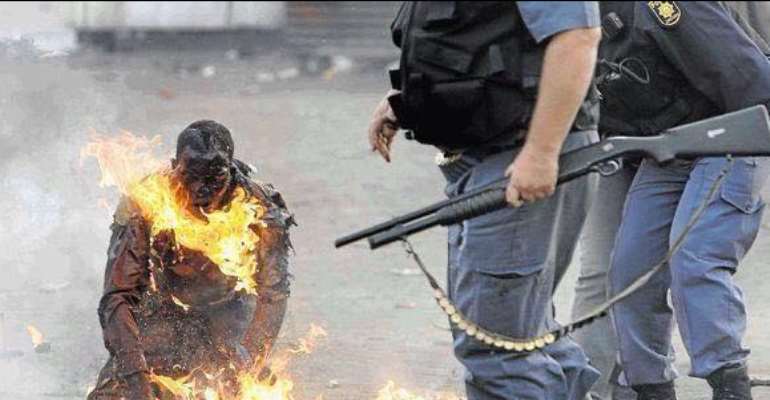Xenophobia Will Cause ‘Incredible’ Damage To SA Economy
Chairman And Founder Of Africa’s Leading Hotel Group Says The Economy Is Under Threat If Violence Is Not Resolved Soon

The South African economic and tourism industries will suffer a major blow following recent violence against foreign nationals, says Otto Stehlik, founder and chairperson of the Protea Group - Africa’s leading hotel operating company.
Speaking at a Distinguished Speakers Programme (DSP) at the University of Cape Town Graduate School of Business (UCT GSB) on how he grew the multi-billion rand empire, Stehlik says his focus on respect for human dignity, giving the best service and doing everything with excellence in mind, contributed to their success.
Stehlik immigrated to South Africa from Austria in 1970 and founded the Protea Group in 1984 with no capital. He says the recent spate of violence against foreigners is “doing incredible damage” to the South African economy and the tourism industry.
“South Africa is taking a knock, not just from a tourism or travel perspective, but from an economic perspective – our economy is not doing well,” he says.
Defense minister Nosiviwe Mapisa-Nqakula announced this week that government would deploy the army to areas hard-hit by xenophobia, to help police contain the attacks against foreigners. According to news reports, seven people have already been killed and dozens injured in the three-week long unrest.
But despite the violence, Stehlik says the tourism industry, which has been in decline, has the ability to bounce back, provided government takes drastic steps to resolve the violence.
“From a natural point of view, South Africa is one of the most beautiful places to live, therefore tourism is almost a God-given gift for the country,” he says.
In a bid to further boost tourism in the country, Stehlik says for the past eight months he, along with a small negotiating team, have been in talks with the Department of Home Affairs in an attempt to renegotiate the country’s Visa rules. He says government has made it “difficult” for tourists to visit the country – leading to massive loss in revenue.
“Although it doesn’t sound as extreme as the xenophobic situation, from an economic point of view, it is equally damaging,” Stehlik says.
Violence against foreign nationals has grabbed local and international headlines but Stehlik says there are a few other “major concerns” that need to be addressed “holistically” in SA. He says the energy, healthcare, education, water and security sectors are in crisis and need urgent attention.
“If the government isn’t able to do the job properly, we need to find people who can do it better. “If someone is competent and able to manage one function, they are competent to manage many functions – in the same way, if somebody is unable to manage a function, they need to be replaced,” he says.
Stehlik says he is hopeful that government will address its challenges, the same way the country fought to resolve apartheid.
“South Africa and its people have the capacity to resolve problems - a country that was able to resolve apartheid in the way that it did, will be able to address and manage the current security issues,” he says.
